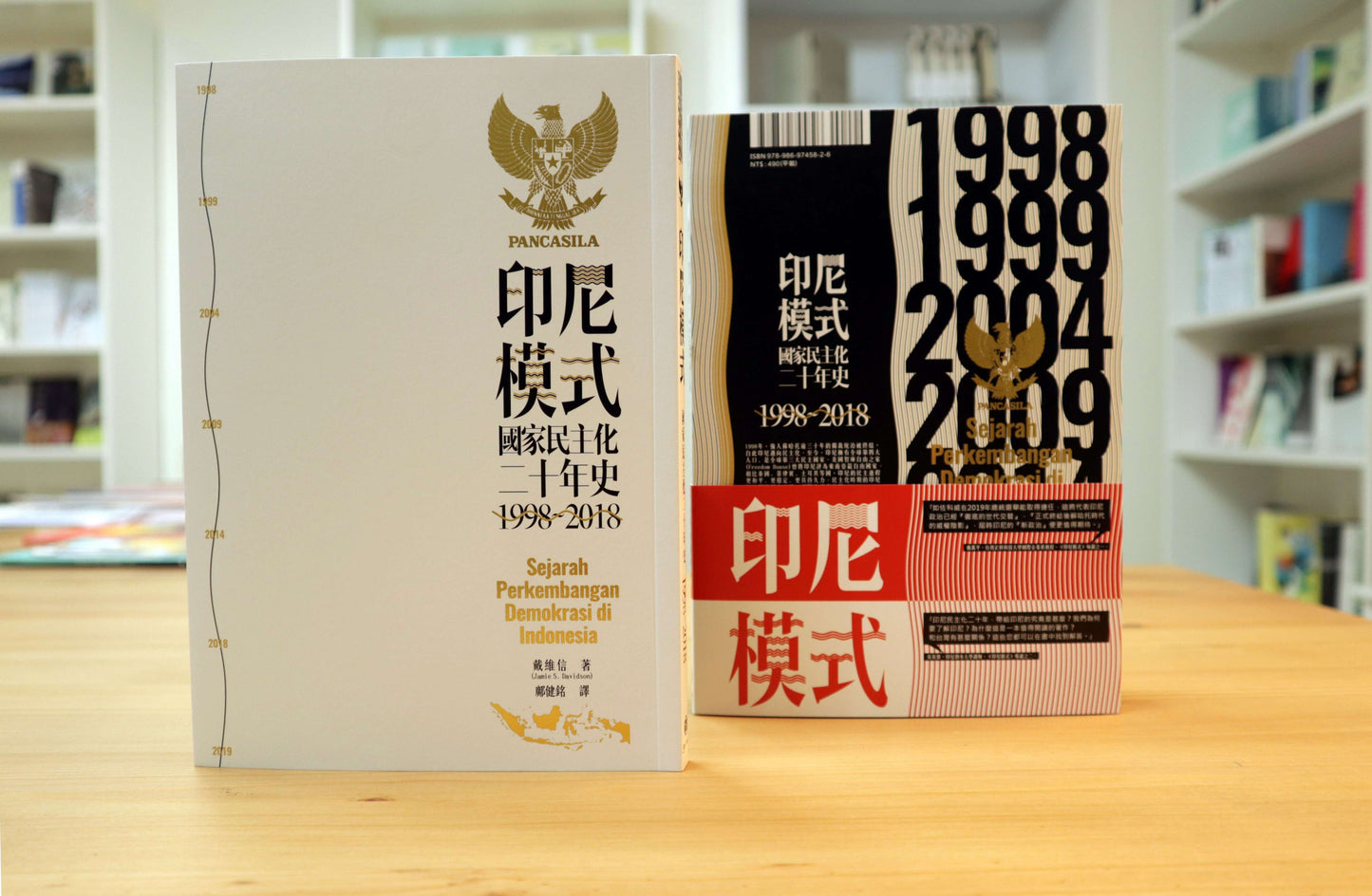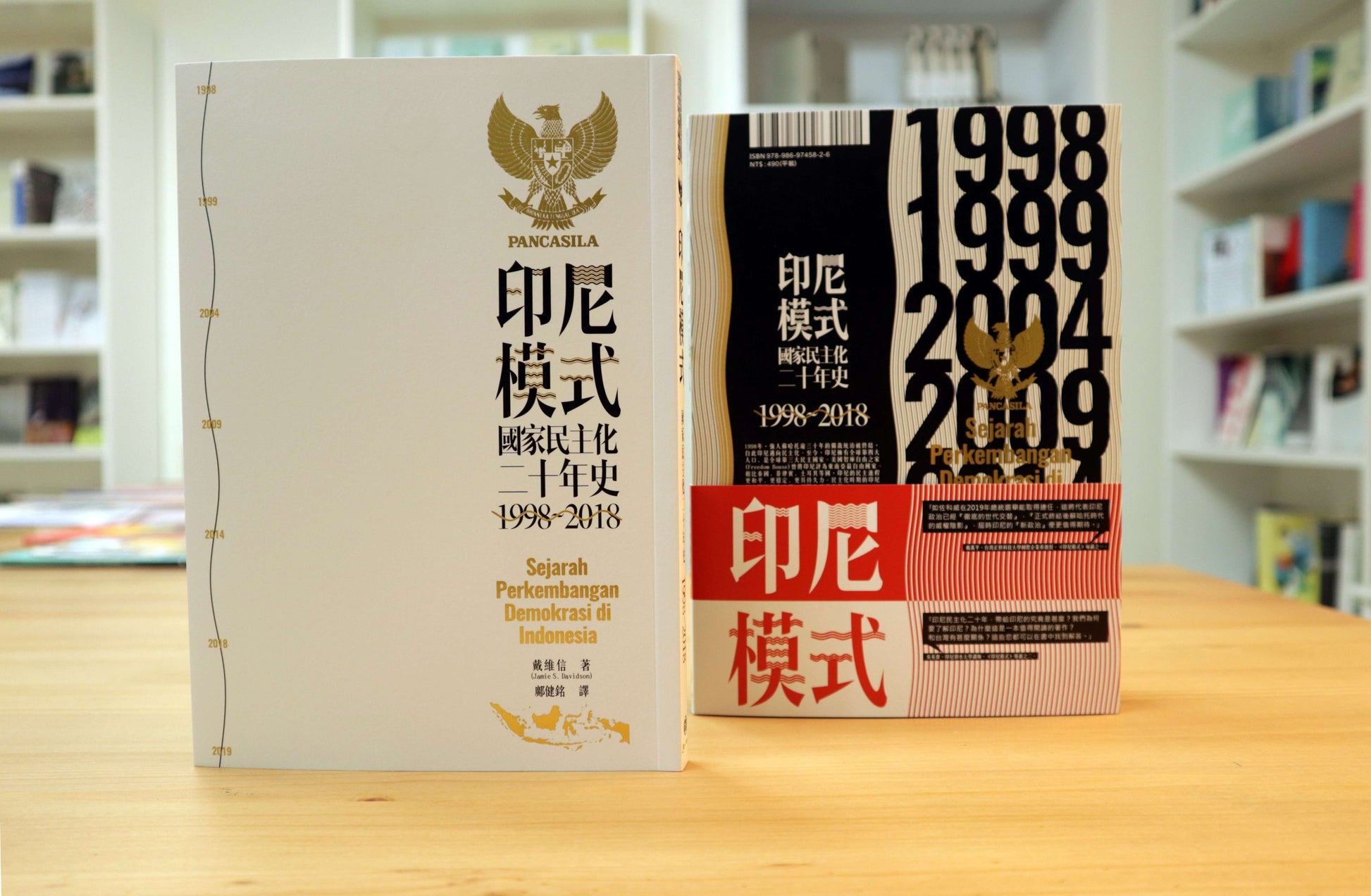The Indonesian Model: Twenty Years of National Democratization (1998-2018)
The Indonesian Model: Twenty Years of National Democratization (1998-2018)
5 in stock
Couldn't load pickup availability
出版社: 季风带
ISBN/EAN: 9789869745826
出版日期: 2019-04-10
页数: 215页
语言: Traditional Chinese
■ How does Indonesia’s democratic process affect the country’s economic development?
■ Why did Indonesia's political and economic reforms seem to stagnate during the ten-year term of Susilo Bambang Yudhoyono (SBY) as Indonesia's first democratically elected president (2004-2014)?
■ After Jokowi, who rose to prominence as a political novice, won the 2014 presidential election, why has the country's economic development moved towards a state capitalist model, while domestic political confrontation seems to have only increased?
■ Even though Muslims make up over 80% of the population, Indonesia can still be considered a generally secular state. However, will the rise of radical Islam jeopardize Indonesia's pluralistic democracy? Where will Indonesia's democratic process head after the 2019 general election?
A popular political view in mainland China is that democratization is prohibited due to the country's large population, lest the country fall into chaos. This deeply held view is, to some extent, one of the key reasons for the continuation of China's authoritarian politics.
In 1998, over three decades of strongman Suharto's dictatorship ended, and Indonesia embarked on the path of democratization. Today, Indonesia boasts the world's fourth-largest population and is the world's third-largest democracy. The US think tank Freedom House once ranked Indonesia as the freest country in Southeast Asia. Compared to countries like Thailand, the Philippines, and Turkey, Indonesia's democratic process has been more peaceful, stable, and enduring. Indonesia's economy during this period of democratization has also been remarkable. McKinsey & Company, a consulting firm, predicts that Indonesia is expected to become the world's seventh-largest economy by 2030. Indonesia is also home to numerous startups (or "unicorns") valued at over $1 billion. Go-Jek, Tokopedia, Traveloka, and Bukalapak are all Indonesian unicorns.
There are many reasons why Indonesia will ultimately struggle to maintain a democratic system. Academic literature has long highlighted the challenges that could hinder the island nation's democratic development, including its extreme ethnic and religious diversity, predominantly Muslim population, low levels of development (GDP per capita below $4,000), abundant natural resources, widening poverty gaps, a weak executive, and a lack of commitment to democracy among neighboring countries (such as Thailand, Singapore, Vietnam, Malaysia, or China). Other, more subtle obstacles to Indonesia's democratic progress include the legacy of federalism, colonialism, and authoritarianism.
However, two decades into Indonesia's democratization, the country appears to have overcome all challenges. In his book, "Indonesia: Twenty Years of Democracy (1998-2018)," Jamie S. Davidson, a political scientist at the National University of Singapore, focuses on the dynamics of Indonesia's democratization, tracing the political gains and losses of this complex democratic experiment. Dr. Davidson categorizes Indonesia's democratic process into three phases: a "reform period," a "stagnation period," and a "confrontation period," analyzing how new and existing political forces and international organizations interacted and grappled with each other during these three periods. Dr. Davidson's book asks: What are the strengths and weaknesses of Indonesia's developing democracy? Why has the country's democratic process been met with mixed reviews? What are the prospects for Indonesia's future democratic path? Can Indonesia's democratic development endure for the next two decades?
For policymakers, researchers, and even the general public, "The Indonesian Model: A Twenty-Year History of National Democratization" offers a rare and concise account of the complex political and economic developments during Indonesia's democratization period and before and after the 2019 general election. Furthermore, amidst a global democratic retreat, "The Indonesian Model" offers insights into the democratic process in Asia and beyond.
1. Indonesia has extraordinary economic potential and close ties with Taiwan. Indonesia boasts a large and young population of nearly 300 million, with an average age of approximately 30. Indonesia is Taiwan's 13th-largest trading partner, 15th-largest export market, and 9th-largest source of imports. There are 170,000 Indonesian migrant workers living in Taiwan. In November 2018, Indonesia and Taiwan signed the Memorandum of Understanding on Comprehensive Economic Cooperation. Against this backdrop, "The Indonesian Model" is an excellent introduction to Indonesia's political and economic development during its democratization period.
2. Indonesia has a large population, a majority Muslim population, and a deep history of authoritarian politics. However, over the past two decades of democratization and amidst the recent global democratic retreat, Indonesia's democratic process has consistently demonstrated flexibility and resilience, remaining relatively able to maintain its pluralistic and secular identity, and offering numerous surprises. The experience of this great democracy deserves serious consideration across Asia and around the world.
3. The Indonesian Model also focuses on how Indonesia navigates geopolitical dynamics during its period of democratization and how politics impacts its economy. It is a concise and essential reference for understanding Indonesia's future political and economic impact on Southeast Asia and Asia.
Dr. Jamie S. Davidson
Dr. David received his Ph.D. from the University of Washington and has been teaching at the National University of Singapore since 2005, where he is currently an Associate Professor in the Department of Political Science. Dr. David has researched Southeast Asian politics for over two decades, with a particular interest in Indonesian politics. His publications include From Rebellion to Riots: Collective Violence on Indonesian Borneo (2008) and Indonesia's Changing Political Economy: Governing the Roads (2015) , published in Indonesian in 2019. He also co-edited The Revival of Tradition in Indonesian Politics: The Deployment of Adat from Colonialism to Indigeneity (2007) , published in Indonesian in 2010. He is currently conducting research on rice politics in Southeast Asia.
Kwong Kin Ming
Editor-in-Chief of Monsoon Culture, Taiwan. He studied at the Lee Kuan Yew School of Public Policy in Singapore and conducted research there. He is the author of The British Era: The Art of British Colonial Governance and Two Cities Confronted: The Singapore Model and Hong Kong's Future. He has co-authored books including China's Influence and the Center-Periphery: Tug of War in Hong Kong, Taiwan, and the Indo-Pacific (forthcoming), East Asia: Developments and Challenges, Hong Kong Under Chinese Rule: Economic Integration and Political Gridlock, and The Social Movement Era: The Trajectory of Hong Kong's Contentious Politics. His articles have appeared in The Diplomat and Asian Survey ; Hong Kong's Sing Tao Daily, Ming Pao, Economic Daily, Asia Weekly, Stand News, Initium Media, and Taiwan Review; Singapore's Channel NewsAsia and Lianhe Zaobao; Malaysia's Contemporary Review and Suihuo Review; Taiwan's Up News, New News, Wind Media, Key Review Network, and Story; and China's Candidate Project.
Share


